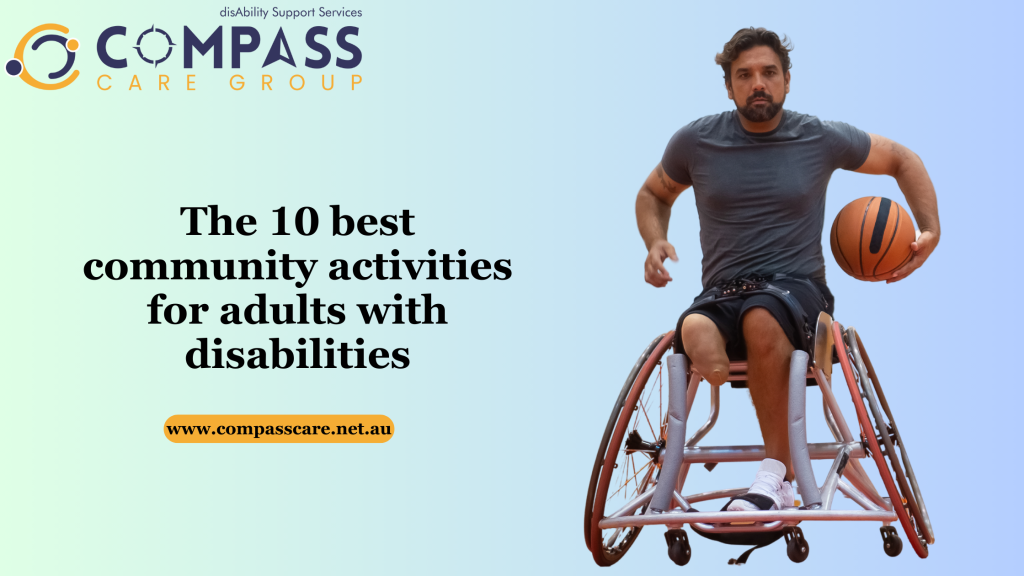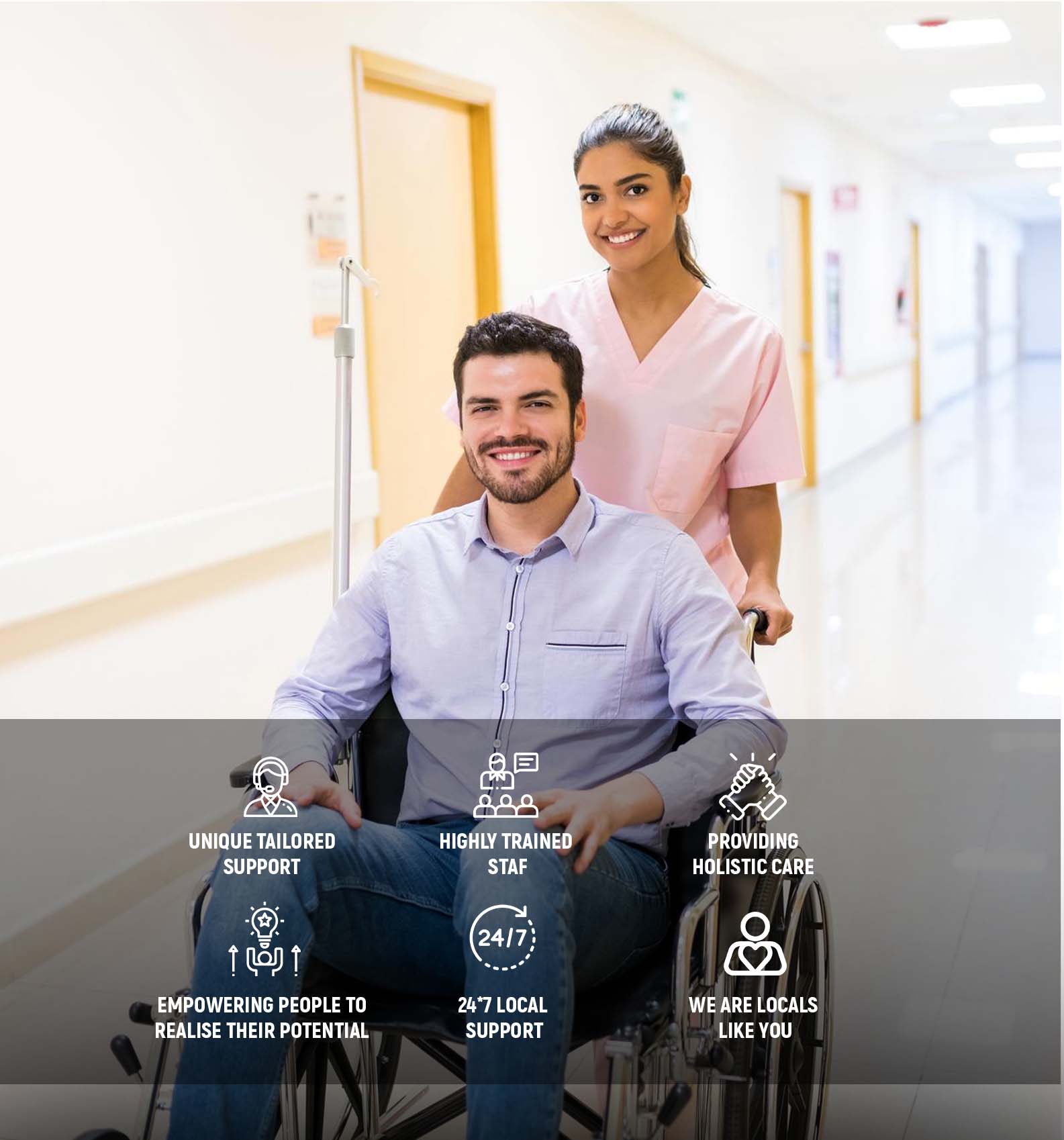NDIS Plan Management Perth (NDIS) offers many community activities for adults with disabilities that encourage social inclusion, personal growth, and the development of mental and physical strength.
Community activities for adults with disabilities help them engage in recreation and explore hobbies and passions they have always wanted to explore or nurture. However, participants must reflect on their NDIS plan and objectives before participating in the multiple community activities.
Here are some of the community activity services for adults with disabilities that we can explore:
Different Community Activities for Adults with Disabilities
The renowned Disability Service Provider Perth supports and funds the participants with the help of the service providers so that they can go through different community activities included in their plan. Community activities among adults with disabilities are an excellent way to align with their plans and make their lives more enjoyable. Here are a few community activities that a participant can check for availability with their service providers:
Volunteer work for mental stimulation
Volunteering at various places, such as animal shelters, providing food to needy people, or working in community gardens, is rewarding and educational. It helps give back to the community without any expectations, teaches new skills, and provides valuable experience. It also helps to gain valuable skills and knowledge. Community support workers can help connect individuals with disabilities to volunteer opportunities based on their abilities and choices.
Art classes in the local gallery
Art classes provide an excellent platform for people with disabilities to explore and express their imagination and connect with people with similar interests. They are a beautiful way to learn new artistic skills, gain confidence, and make new friends in the community.
The local disability service provider can help them locate nearby art classes that offer tailored activities for the participant’s interests and abilities. Participants need to determine whether they are interested in drawing, painting, making sculptures, or any other art form they choose.
Music therapy for cognitive development
Music therapy has innumerable benefits for everyone, including individuals with disabilities, such as improving physical, emotional, spiritual, and cognitive abilities. It can slow down hyperactivity and lower stress, anxiety, and depression-related issues. It can also improve communication, motor skill development, and overall problems that a person with a disability might face daily.
Cooking classes to explore cuisine skills
Many people with disabilities love to eat different foods and cook. Therefore, cooking classes can be helpful for adults with disabilities who want to enjoy their cooking skills and socialise with others with similar interests. Community cooking classes are a great way to learn new techniques, try known and unknown recipes, and explore the social values of working in a community and serving food.
Dance class for physical and mental health
Dance classes can be a fantastic way for individuals with disabilities to stay mentally and physically active. They can also help them stay active and healthy, learn group activities, express themselves creatively through different postures of the dance forms, and socialise with others who share their interests. Dance classes can improve physical health and coordination by teaching and engaging students to dance solo or in groups. They can also provide a sense of engagement with their community.
Yoga and meditation help develop abilities.
It is a proven fact that yoga and meditation can significantly benefit individuals with disabilities, helping them improve their physical and mental state in numerous ways. Community yoga experts can tailor these practices to meet each individual’s needs and abilities while making the session enjoyable. Individual participants with disabilities can take courses of their choice and capacity and learn to balance, stay calm, and be happy.
Gardening as a passion
Starting with as little as creating a herb garden in the community backyard can be a relaxing and rewarding experience that teaches about sustainability and an organic way of living. People with disabilities can enjoy delicious cooking by choosing herbs from the garden and enjoying a moment of satisfaction.
Attending the local trivia night
Local trivia nights can be enjoyable and excellent opportunities to connect with fellow trivia lovers. Attending one with the support worker for disabled individuals is a beautiful way to engage in communication and accessibility in the community.
Exploring local markets
By visiting local markets and shops, people with disabilities can explore unique handicrafts, indulge in tasty treats, and communicate with friendly merchandisers. Their social support workers can also attend the community markets and help them navigate the busy streets and all the enjoyable hustle and bustle.
Engage with the local library.
Libraries often offer inclusive programmes for adults with disabilities on certain days of the week, such as reading storytime, storytelling opportunities, bookselling, and creative workshops. These programmes are also modified for adult disability issues and provide personal growth, socialisation, and engagement with the audience. It also provides learning opportunities tailored to people with disabilities’s interests and abilities.
Community Book Clubs
It is thrilling for adults with disabilities who love to read books to join a book club. It can be a great activity for them if they want to connect with like-minded individuals. It can also broaden their scope of knowledge, expand their horizons, and make new friends.
Joining the community book clubs promotes social mingling, enhances personal development, and improves concentration building
Community Theatres
Visiting a community theatre over the weekend or during a festival is exciting. It offers an extensive range of engaging activities for adults with disabilities. Participating there can engage them with others and help them communicate and share views about art and culture. It also develops their aesthetic view of different eras of theatre.
Brain Stimulation with Indoor Community Activities
Indoor activities can be a great way to stimulate the brain and keep a person engaged and entertained if they have limited mobility. Depending on the person’s interests and preferences, there are substantial indoor activities that people with disabilities can do to engage themselves. Community halls have facilities to serve food, arrange various fairs or have a simple game evening where they can mingle with others and spend quality time.
Support Groups
Community support workers can assist adults with disabilities in finding and accessing programs and resources in their community. They can offer transportation and encourage the disabled adult to participate in activities that align with their specific interests and capabilities.
With the help of local and trusted community support workers, adults with disabilities can utilise their time to explore their creativity, stay engaged and active, learn unexplored skills, and make new friends while improving their physical, emotional, and cognitive abilities.
Conclusion
Active participation in community activities for adults with disabilities is a great way to stay engaged and connected with others. These activities provide options for socialisation, skill-building, and personal satisfaction. Everyone needs access to community activities tailored specifically for individuals with disabilities, which can be done with the help of support workers.
NDIS Plan Management Perth provides financial opportunities and budget management for participants. Plan management is essential to ensure that the participants’ chosen community activities are financially sustainable within the allocated budget and to help the participants understand the plan, aspirations and limitations as clearly as possible.

